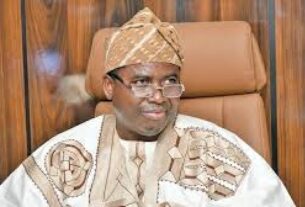Former Kaduna State Governor, Nasir El-Rufai, has cautioned the Economic Community of West African States against military intervention in Niger Republic.
Categorically, he told the regional bloc that any move in that direction would mean a declaration of war on Nigerians in the North who have relationships with citizens of the embattled country.
Dialogue, he argued, remains the only and best way to resolve the crisis in Niger, as canvassed popularly across Nigeria.
The ECOWAS defence chiefs had on Thursday pledged readiness to participate in a standby force that would restore democracy in Niger after generals toppled and detained President Mohamed Bazoum.
But in a statement via X, formerly known as Twitter, El-Rufai said, “As ECOWAS beats the drums of war, I recall the 1970s rock classic by Dire Straits – ‘Brothers in Arms’, because a war within our subregion is a war between brothers.
“Indeed, the people of the Niger Republic are one and the same as those living in Northern Nigeria.
“Let us bend therefore over backward to avoid this civil war between brothers.”
El-Rufai’s caution ccame as the African Union said Tuesday it had suspended Niger until civilian rule in the country is restored and would assess the implications of any armed intervention in the troubled Sahel nation.
According to Agency Reports, the Peace and Security Council of the continental body, “requests the AU Commission to undertake an assessment of the economic, social and security implications of deploying a standby force in Niger and report back to Council,” the bloc said, following strong differences on the matter.
The suspension came amidst reports of President Bola Tinubu, ECOWAS chairman, meeting with some critical stakeholders in the subregion over planned intervention in the crisis in Niger Republic.
The meeting, it was reliably learned was part of efforts to see a way of settling the political crisis after the military overthrew the democratically elected President.
Although the agenda of the meeting was not made public, it was gathered that the reason would revolve round averting armed conflict over the Niger Republic crisis.
Army officers toppled President Mohamed Bazoum on July 26, prompting the West African regional bloc, ECOWAS to threaten to use force to reinstate him.
Nigeria’s Senate had led prominent institutions, bodies and individuals across Nigeria in rejecting military intervention in the neighboring troubled country to restore democracy, and advised ECOWAS to adopt dialogue instead.





